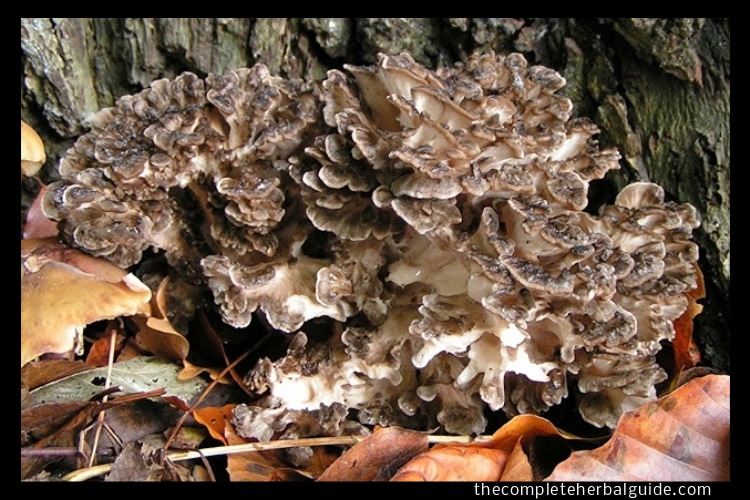
Medicinal Uses, Benefits & Side-Effects of Astragalus
Table of Contents
- Active Constituents of Astragalus
- Medical Uses and Health Benefits of Astragalus
- 1. Acts as an Anti-Inflammatory
- 2. Boosts the Immune System
- 3. Slows or Prevents the Growth of Tumors
- 4. Protects the Cardiovascular System
- 5. Regulates and Prevents Diabetes and Illnesses Related to Diabetes
- 6. Contains Antioxidative and Anti-Aging Capabilities
- 7. Heals Wounds
- 8. Alleviates Symptoms of Chemotherapy
- 9. Treats Colds and Flu
- 10. Provides Supplemental Therapy for Chronic Asthma
- Side Effects, Precautions, Interactions of Astragalus
Active Constituents of Astragalus
The main constituents of Astragalus membranaceous include polysaccharides, saponins, flavonoids, amino acids, trace elements, and organic compounds. The polysaccharides found in Astragalus play a role in immunomodulatory actions. Polysaccharides A, B, and C have been identified as glucans and polysaccharide D as a heteropolysaccharide. Mineral trace elements found in Astragalus include zinc, iron, copper, magnesium, manganese, calcium, potassium, sodium, cobalt, rubidium, molybdenum, chromium, vanadium, tin, and silver, tantalum, hafnium, europium, and thorium. Organic compounds identified in the roots include choline, betaine, gluconic acid, sitosterols, aromatic compounds, essential oil, linoleic acid, aminobutyric acid, bitter compounds, and asparagine.
Medical Uses and Health Benefits of Astragalus
Astragalus strengthens metabolism and digestion, raises metabolism, aids in strengthening the immune system, and is used in the healing of wounds and injuries. Astragalus is an adaptogen, a type of nontoxic natural substance that helps the body maintain its normal balance of health and wholeness and increases the body’s endurance and resistance to a wide array of physical, chemical, and biological stressors. Astragalus enhances body energy. It promotes metabolism of serum and liver proteins, stimulates the growth of antibodies, increases white blood cells, and thus increases resistance to viruses. Taken as a tonic, Astragalus is believed to build stamina and vitality. Adaptogens help normalizes the functioning of various body systems by affecting the action of hormones. Astragalus inhibits gastric secretions, reduces gastric acid, and thus helps cure stomach ulcers.
Astragalus strengthens immunity to disease. It demonstrates its strongest actions in cases of chronic (long-term) conditions through a tonic action. Astragalus has been traditionally used for strengthening the immune system and helping prevent bacterial and viral infections. Astragalus stimulates production and activation of the white blood cells, which fight infection. It helps increase and protect the number of white blood cells in the body needed for a healthy immune response. Astragalus has certain inhibiting effects on molecular pathological changes caused by viruses, increases growth of plasma cells, stimulates synthesis of antibodies, and builds up body defense. By boosting the immune system, Astragalus may help reduce the risk of a person becoming ill with a bacterial or viral infection. Astragalus also stimulates the adrenal glands, whose functions are suppressed in cancer.
Astragalus may enhance the effectiveness of conventional treatments for cancer, such as chemotherapy and radiation. Many people undergoing cancer chemotherapy or radiation take astragalus to fortify their battered immune systems. Astragalus may also lessen the degree of side effects experienced with cancer treatments and improve quality of life. As an antioxidant, it helps to counteract cell damage caused by unstable oxygen molecules called free radicals. It reduces toxic side effects and enhances therapeutic effects. Cancer patients who take astragalus during or after cancer treatments tend to recover more quickly from the ill effects of the treatment.
Astragalus has protective and strengthening effects on the heart. The saponins found in astragalus help prevent blood vessels from sticking together and fatty plaques from forming in the arteries of the heart which can block the flow of blood. Astragalus membranaceous may improve arrhythmias, creatinine phosphokinase levels, and cardiac function. It helps relieve chest distress and breathlessness due to a weakened heart. Astragalus may also help reduce high cholesterol levels and regulate blood pressure.
According to continuing research, astragalus health benefits include:
1. Acts as an Anti-Inflammatory
Inflammation is at the root of most diseases. From arthritis to heart disease, it’s often the culprit of the damage. Many studies show that thanks to its saponins and polysaccharides, astragalus can reduce inflammatory response in connection to a number of illnesses and conditions, from helping to heal wounds and lesions to reducing inflammation in diabetic kidney disease. (6)
2. Boosts the Immune System
In terms of reputation, boosting the immune system is astragalus’ claim to fame. It’s been used in this capacity for thousands of years. A study out of Beijing displayed its ability to control t-helper cells 1 and 2, essentially regulating the body’s immune responses. (7) Although the full extent of the herb’s capabilities is yet to be determined, there is sufficient evidence to suggest that astragalus, used as an adjunct therapy, will someday be used to cure many diseases.
3. Slows or Prevents the Growth of Tumors
Many recent screenings have shown the success of Astragalus saponins, flavonoids and polysaccharides in decreasing or eliminating tumors. In instances of chemoresistance treating liver cancer, astragalus has shown potential in reversing multidrug resistance and as an addition to conventional chemotherapy, according to a study published in the Journal of Pharmacy and Pharmacology. (8)
4. Protects the Cardiovascular System
The flavonoids present in astragalus are antioxidants that help prevent plaque buildup in arteries and narrowing of vessel walls by protecting the inner wall of the vessel. In addition, a 2014 study published in the Chinese Journal of Integrative Medicine suggests an injection of Astragalus, combined with conventional treatment for viral myocarditis (inflammation of the middle layer of the heart wall), makes treatment more successful in heart conditions. (9)
Other studies have shown its ability to reduce blood pressure and level of triglycerides. (10) High levels of triglycerides put individuals at risk for many forms of heart disease, such as stroke, heart attack and hardening of artery walls.
During a heart attack, heart muscle damage occurs when there is a lack of blood supply and oxygen. At that time, calcium overload creates secondary damage. Astragalus can prevent additional heart muscle damage by regulating calcium homeostasis in the heart.
5. Regulates and Prevents Diabetes and Illnesses Related to Diabetes
Astragalus has been studied progressively as an antidiabetic. Studies show its ability to relieve insulin resistance and treat diabetes naturally. The herb’s collection of saponins, flavonoids and polysaccharides all are effective in treating and regulating type 1 and 2 diabetes. They’re able to increase insulin sensitivity, protect pancreatic beta cells (the cells in the pancreas that produce and release insulin) and also act as anti-inflammatories in areas related to diabetes symptoms. (11)
Kidney disease in diabetics is also a common problem, and astragalus has been used to treat kidney illness for many years. More recent studies have shown astragalus can slow the progress of kidney problems in diabetics and protect the renal system. (12, 13)
6. Contains Antioxidative and Anti-Aging Capabilities
Oxidation due to free radical damage is the main component in disease and aging, and many elements found in astragalus fight free radical damage and prevention of oxidative stress. The herb’s polysaccharides have positive effects on the immune system and improvement of the function of the brain, both of which could lengthen lifespan. (14)
7. Heals Wounds
Because of its anti-inflammatory qualities, Astragalus has a long history of treating wounds. Radix Astragali, another name for the dried root of Astragalus, has been used in Traditional Chinese Medicine for the repair and regeneration of injured organs and tissues.
In a 2012 study by the Institute of Pharmaceutics at Zhejiang University, wounds treated with Astragaloside IV (the active ingredient in dried astragalus root) showed recovery rates increase two- to threefold over 48–96 hours. It was concluded that astragalus is a promising natural product for anti-scarring and healing in wounds. (15)
8. Alleviates Symptoms of Chemotherapy
Astragalus has been shown to help patients receiving chemotherapy to recover more quickly and extend their life spans. In cases of severe chemotherapy symptoms like nausea, vomiting, diarrhea and bone marrow suppression, astragalus has been given intravenously and in combination with other Chinese herbal mixtures. Early research suggests its ability to reduce these symptoms and increase the efficacy of the chemotherapy treatments. (16)
9. Treats Colds and Flu
Because of astragalus’ antiviral capabilities, it has long been used to treat common colds and the flu. It’s commonly combined with other herbs like ginseng, angelica, and licorice. As with many other natural cold remedies, it seems to work better when used when healthy individuals use the supplement regularly in order to prevent the illness before it happens. A regimen of astragalus before the colder months of winter is said to prevent or decrease the number of colds and upper respiratory illnesses individuals will have throughout the season. (17)
10. Provides Supplemental Therapy for Chronic Asthma
Astragalus has been used to treat chronic asthma and determined to be a successful supplemental therapy and asthma natural remedy. After being treated, hypersensitivity in airways decreased substantially and mucus production and inflammation were reduced in studies. By preventing or reducing asthma attacks, individuals could be relieved of chronic asthma issues. (18)
There is also evidence to suggest astragalus can successfully:
- prevent collagen degradation
- promote the growth and function of new blood vessels in newborns
- inhibit herpes simplex virus 1 (19)
- prevent the replication of viruses like Coxsackie B-3, a virus that triggers illnesses ranging from mild stomach issues to major heart complications (20)
- treat inflammation in eczema (21)
- treat hepatitis by inhibiting hepatitis B virus cells in the liver (22)
- treat HIV by protecting t-helper cells fight the virus for much longer (23)
- be used as a mild diuretic
Side Effects, Precautions, Interactions of Astragalus
Astragalus is generally safe and the side effects are rarely reported. Astragalus may interfere with the actions of diuretics, phenobarbital, beta-blockers, and anticoagulants. Astragalus may increase the effects of some antiviral medications such as acyclovir and interferon. Astragalus may also counteract the immune-suppressing effects of cyclophosphamide, a medication used to reduce the chances of rejection in transplant recipients. Astragalus may increase growth hormone levels. Individuals with allergies to members of the Leguminosae (pea) family are more likely to have allergic reactions to astragalus.






